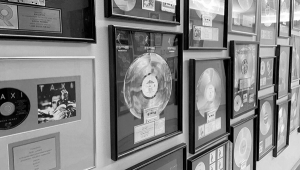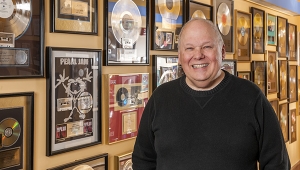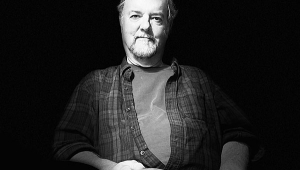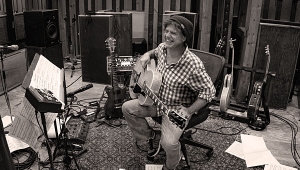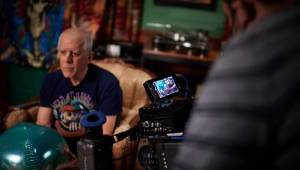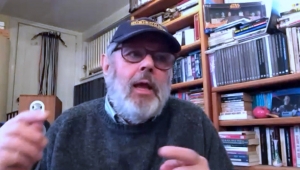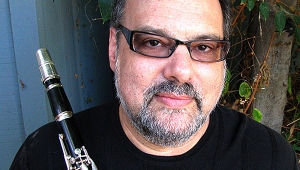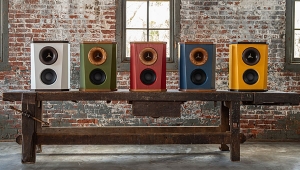| Columns Retired Columns & Blogs |
Robin Marshall: A Modicum of Genius Page 2
Atkinson: There are a lot of ex-bass-players in the hi-fi industry.
Marshall: I tried for a long time to make a living at playing the bass—and came very near to starving. So I went to work for a hi-fi retailer in London, called Hampstead Hi-Fi, who now no longer exists. They told me I was the worst salesman they had ever had because I told customers what was wrong with the equipment. I was then given a job by KJ Leisuresound who were quite easygoing. John Read, who owned KJ, wanted to get involved in making loudspeakers, so by pure accident I ended up effectively starting Audiomaster for him.
Atkinson: I'm sure that it didn't hinder Audiomaster's progress that they had a license to manufacture the LS3/5A . . .
Marshall: That happened in a strange way, because at that time ca 1975 the original Rogers company ceased to exist for a while before being resurrected by the Swisstone company. So as nobody else was manufacturing the LS3/5A, and as there was a ready market for the speaker, I suggested to John that it would be comparatively easy to get the license because of my background in the BBC. And of course that gave Audiomaster its start.
Atkinson: What happened to Audiomaster? The speakers sounded good, you had the backing of a good retail chain . . .
Marshall: Audiomaster ceased for a number of reasons. I think perhaps—with due regard to John Read's abilities—he chose some wrong people to manage the company. When Audiomaster began to grow, it became obvious that I couldn't be everything, I couldn't be the designer, the ad manager, the sales manager, the production manager. So the company had to take on other people to do that. I think John made a bad decision—took on a sales manager who took the company in a funny direction, expanded it a bit too quickly. Basically, like so many other companies, I suppose Audiomaster grew at too great a rate. We couldn't sustain that growth. The money wasn't there. The growth rate ran away with itself.
Atkinson: You ended up selling plenty of loudspeakers but not making any money.
Marshall: That's right.
Atkinson: That was in about 1981? Did you start Epos immediately?
Marshall: No. Again, I've been lucky all my life in these things; when Audiomaster eventually folded, Mo Iqbal of Monitor Audio very kindly offered me a job instantly. Mo was the only person who put his money where his mouth was. Many people came to me and said "We understand that you're going from Audiomaster; you know, we could really use you for something." But they never made any firm offers. Then Mo came along and said "Do you want a job? How much do you want?" He clinched the deal in moments. Mo's a great guy for making decisions.
Atkinson: What was the first model you designed for Monitor Audio?
Marshall: The MA R352 and R252 came out simultaneously. They were done at the same time, as well as another model called the 152, which was done against my judgment. It was a model that Mo specifically wanted, and which I think was an overwhelming disaster.
Atkinson: But the '352 turned out to be a best-seller in the UK.
Marshall: I think the '352 helped to reestablish Monitor Audio as a name.
Atkinson: It was somewhat unconventional for an inexpensive speaker in that it had a large box.
Marshall: It was a mold-breaker. I looked around at what people were doing, and it seemed pointless to just make another clone—you know, here's our version of the standard loudspeaker at this price point . . .
- Log in or register to post comments

